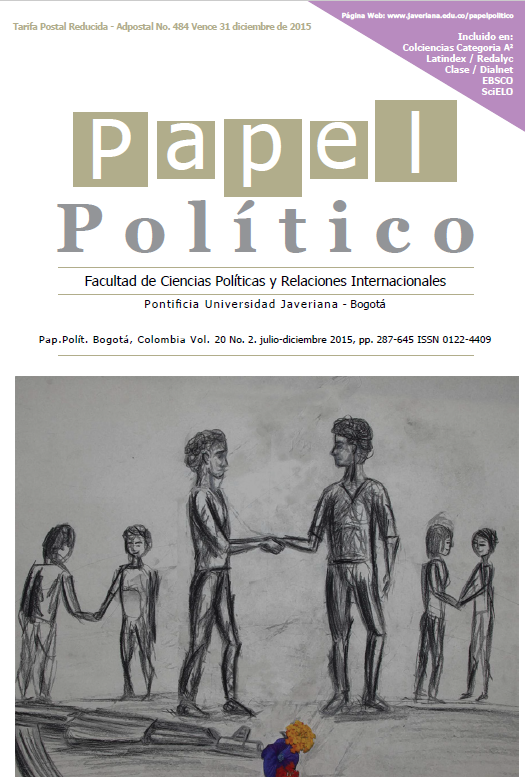Abstract
The transition towards a “post-peace agreements” state of affairs in Colombia creates special scenarios in which a universal model of Transitional Justice policy – in our case that of land restitution –meets with the local. We should understand the “local” not only in a material sense – as land and territory – but also as a perspective that brings into circulation different discourses on peasant society, family, gender, justice and development. The following text analyzes the (dis)encounters between different gender discourses and practices, for the purpose of assessing the transformative capacity of the law for gender justice. In this analysis we use the concept of frictions through which we hope to better understand complex interactions, hidden conflicts, ambiguous outcomes, and also new possibilities for agency.
This journal is registered under a Creative Commons Attribution 4.0 International Public License. Thus, this work may be reproduced, distributed, and publicly shared in digital format, as long as the names of the authors and Pontificia Universidad Javeriana are acknowledged. Others are allowed to quote, adapt, transform, auto-archive, republish, and create based on this material, for any purpose (even commercial ones), provided the authorship is duly acknowledged, a link to the original work is provided, and it is specified if changes have been made. Pontificia Universidad Javeriana does not hold the rights of published works and the authors are solely responsible for the contents of their works; they keep the moral, intellectual, privacy, and publicity rights.
Approving the intervention of the work (review, copy-editing, translation, layout) and the following outreach, are granted through an use license and not through an assignment of rights. This means the journal and Pontificia Universidad Javeriana cannot be held responsible for any ethical malpractice by the authors. As a consequence of the protection granted by the use license, the journal is not required to publish recantations or modify information already published, unless the errata stems from the editorial management process. Publishing contents in this journal does not generate royalties for contributors.


